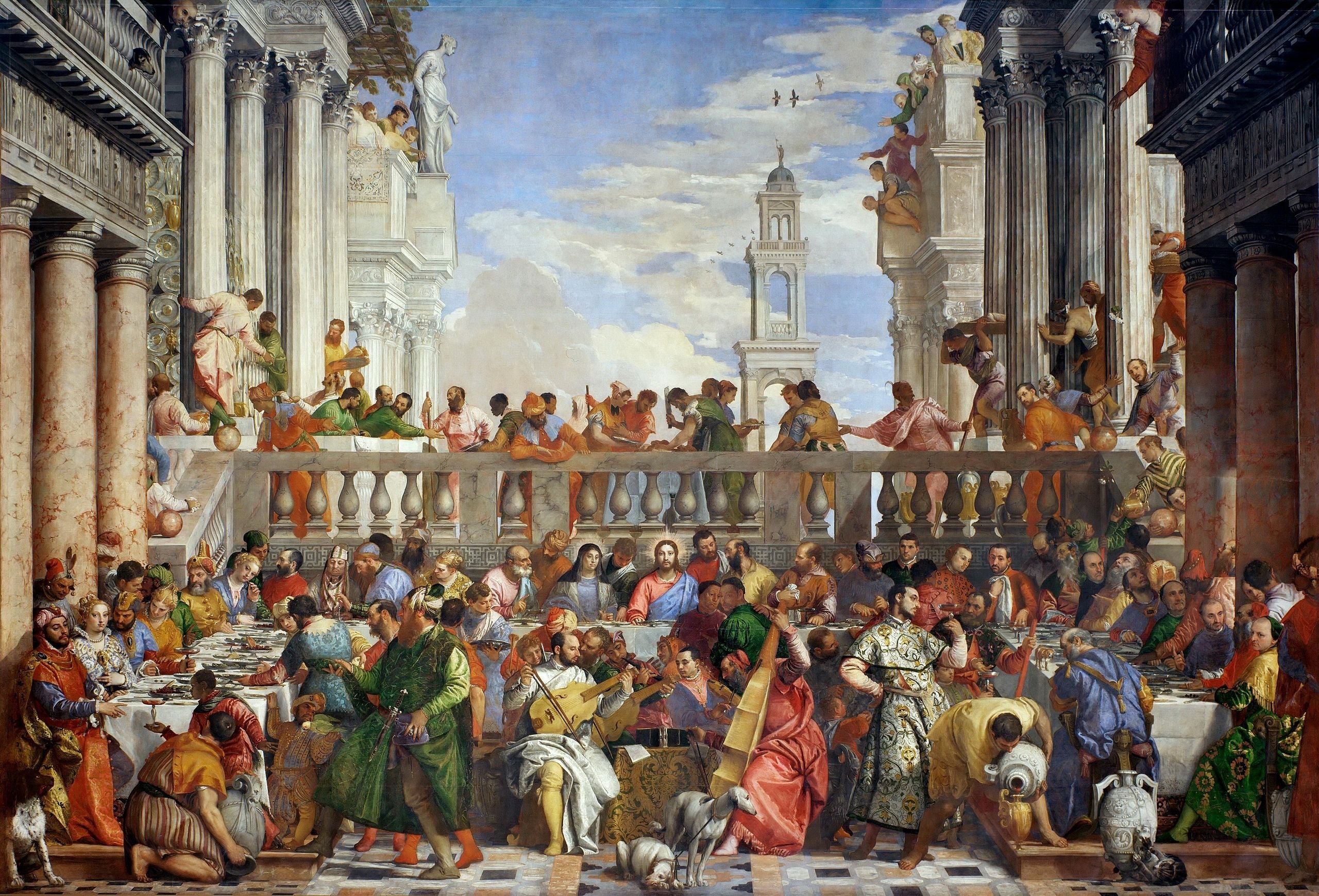Description
The Wedding at Cana is one of the masterpieces of the Italian Renaissance painter Paolo Veronese, painted in the year 1563.
The painting depicts the biblical miracle of Jesus turning water into wine at a wedding in Cana in Galilee, as described in the Gospel of John. The work is famous for its enormous size and complexity, with more than 130 characters depicted in a lavishly detailed scene.
An interesting curiosity about this painting is that it was originally commissioned from another Italian artist, Tintoretto, but ultimately it was Veronese who painted it. In addition, the work was originally created for the monastery of San Giorgio Maggiore in Venice, but today it is in the Louvre museum in Paris.
Another curious fact is that due to its large size, the painting has undergone several modifications over the years. In the 18th century, the height of the painting was reduced to allow it to be hung in a new location, which caused some parts of the original work to be lost.
The theme of the painting is based on the biblical story told in the Gospel of Saint John (John 2: 1-11), about a marriage celebrated in Cana, Galilee, attended by Mary, Jesus and their disciples. Towards the end of the wedding feast, as the wine begins to run low, Jesus calls for the stone jars to be filled with water, which then becomes wine.
Las Bodas De Caná is ranked no. 96 on the list of famous paintings



